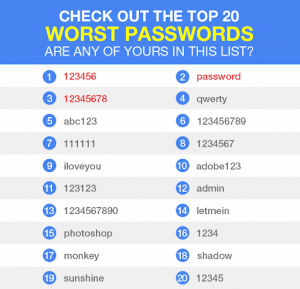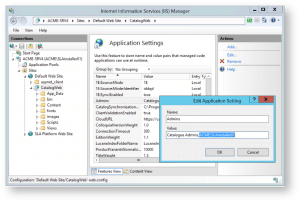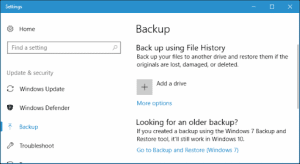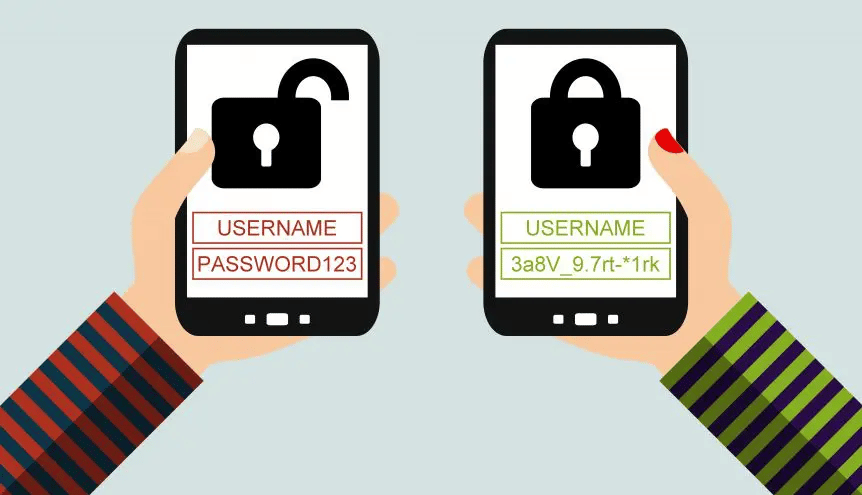Website “insecurity” can pose a huge threat for business owners. Unfortunately, many companies wait until after security is breached to develop best practices for maintaining website security. As a business owner, it is imperative that you proactively identify possible security threats to your website and address them before compromising sensitive consumer information such as credit card numbers, home addresses, phone numbers, and birthdates. Failure to establish solid security practices can result in the loss of consumers, financial failure, viruses that lower your rank on popular search engines, and lawsuits. It takes only one of those issues to crush your business.
There are five major benefits to maintaining website security:
 Thoroughly review staff members and third parties who have access to your website. Unfortunately, partnerships are dissolved daily due to disagreements over how to manage the business, finances, and workload. Your partner leaves with all the credentials to fully access the business website and takes off with your soon-to-be ex-spouse who also has full website access. You are now left holding the bag and facing the possibility that you could lose your business entirely. How will you finance your impending divorce? Moral of the story: do not grant access to others unless it is a MUST and only allow them to access the necessary portions of your website. Fifty-six percent of employees present the largest website security threat to companies due to having been granted access privileges beyond what is necessary.
Don’t trust your business developer, your spouse, your manager nor the president of the United States unless you absolutely must. Even then, do not give anyone carte blanche. Full administrative access grants users the power to control (or steal) your business and access sensitive consumer information which can lead to fraud and embezzlement. You are the only one who should retain full administrative control if at all possible. Also, you should review user accounts on a recurring basis and remove stale users.
Thoroughly review staff members and third parties who have access to your website. Unfortunately, partnerships are dissolved daily due to disagreements over how to manage the business, finances, and workload. Your partner leaves with all the credentials to fully access the business website and takes off with your soon-to-be ex-spouse who also has full website access. You are now left holding the bag and facing the possibility that you could lose your business entirely. How will you finance your impending divorce? Moral of the story: do not grant access to others unless it is a MUST and only allow them to access the necessary portions of your website. Fifty-six percent of employees present the largest website security threat to companies due to having been granted access privileges beyond what is necessary.
Don’t trust your business developer, your spouse, your manager nor the president of the United States unless you absolutely must. Even then, do not give anyone carte blanche. Full administrative access grants users the power to control (or steal) your business and access sensitive consumer information which can lead to fraud and embezzlement. You are the only one who should retain full administrative control if at all possible. Also, you should review user accounts on a recurring basis and remove stale users.
 Consistently backup website data to an off-site platform. Redundancy is a good thing in this scenario as sole reliance upon your website host could result in the inability to restore the website in the event the host has “issues”… Always have a backup for your backup.
Consistently backup website data to an off-site platform. Redundancy is a good thing in this scenario as sole reliance upon your website host could result in the inability to restore the website in the event the host has “issues”… Always have a backup for your backup.
 Backups are crucial because:
Backups are crucial because:
-
- Visitors trust companies who enforce strict website security best practices. Nothing repels consumers more than a flashing “not secure” message on a company’s website.
- Statistically, a website is hacked once every 39 seconds. If your site is lacking an SSL (Secure Sockets Layer) certificate, you can easily obtain one from a Certificate Authority online. An SSL certificate acts as an invisible barrier in preventing hackers from accessing your consumer profiles.
- Security cleanup is far more expensive than developing website security practices. It is well worth your time and money to establish website security in order to avoid costly cleanup after hackers and viruses.
- Google ranking improves and SEO value is boosted when “not secure” issues are addressed.
- Avoid losing consumers by securing your website and experience higher conversion rates and increased revenue.
 Thoroughly review staff members and third parties who have access to your website. Unfortunately, partnerships are dissolved daily due to disagreements over how to manage the business, finances, and workload. Your partner leaves with all the credentials to fully access the business website and takes off with your soon-to-be ex-spouse who also has full website access. You are now left holding the bag and facing the possibility that you could lose your business entirely. How will you finance your impending divorce? Moral of the story: do not grant access to others unless it is a MUST and only allow them to access the necessary portions of your website. Fifty-six percent of employees present the largest website security threat to companies due to having been granted access privileges beyond what is necessary.
Don’t trust your business developer, your spouse, your manager nor the president of the United States unless you absolutely must. Even then, do not give anyone carte blanche. Full administrative access grants users the power to control (or steal) your business and access sensitive consumer information which can lead to fraud and embezzlement. You are the only one who should retain full administrative control if at all possible. Also, you should review user accounts on a recurring basis and remove stale users.
Thoroughly review staff members and third parties who have access to your website. Unfortunately, partnerships are dissolved daily due to disagreements over how to manage the business, finances, and workload. Your partner leaves with all the credentials to fully access the business website and takes off with your soon-to-be ex-spouse who also has full website access. You are now left holding the bag and facing the possibility that you could lose your business entirely. How will you finance your impending divorce? Moral of the story: do not grant access to others unless it is a MUST and only allow them to access the necessary portions of your website. Fifty-six percent of employees present the largest website security threat to companies due to having been granted access privileges beyond what is necessary.
Don’t trust your business developer, your spouse, your manager nor the president of the United States unless you absolutely must. Even then, do not give anyone carte blanche. Full administrative access grants users the power to control (or steal) your business and access sensitive consumer information which can lead to fraud and embezzlement. You are the only one who should retain full administrative control if at all possible. Also, you should review user accounts on a recurring basis and remove stale users.
 Consistently backup website data to an off-site platform. Redundancy is a good thing in this scenario as sole reliance upon your website host could result in the inability to restore the website in the event the host has “issues”… Always have a backup for your backup.
Consistently backup website data to an off-site platform. Redundancy is a good thing in this scenario as sole reliance upon your website host could result in the inability to restore the website in the event the host has “issues”… Always have a backup for your backup.
 Backups are crucial because:
Backups are crucial because:
- Firewalls, security practices, and patch management tools don’t always work. When it comes to business websites, no one is immune to the occasional attack. Even worse is the fact that 68% of small business owners don’t have any sort of recovery plan in place in the event of a breach. While many companies rely on the cloud for backups, they are entrusting valuable information to the cloud provider. Consistent backups are the foundation of a solid disaster recovery plan.
- Hackers are constantly evolving in their processes. Whether infecting your website with ransomware or utilizing simple tactics such as supply chain attacks (child’s play), hackers are known for targeting the cloud and on-site information in order to obtain sensitive consumer info. One of the downfalls of digital transformation is that it has increased the frequency of cyberattacks and businesses are experiencing massive influxes of hacker attacks compromising sensitive consumer info and business financials.
- Sixty percent of small businesses whose data is compromised or lost entirely will cease to exist within six months of such an event. If the power goes out in your building and your server completely crashes, all of your valuable data is gone unless you have a backup. Regardless of the scale of your business, anticipate the worst-case scenario and be disciplined with consistent backups.



